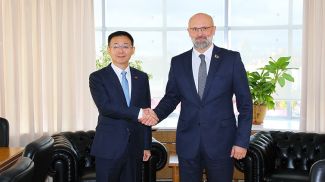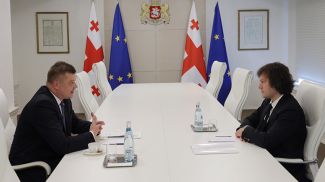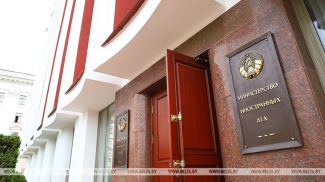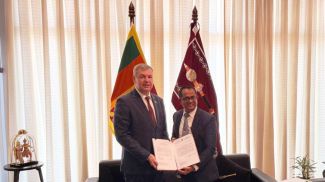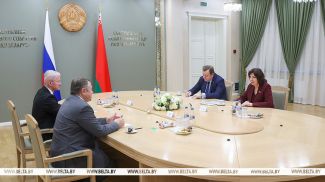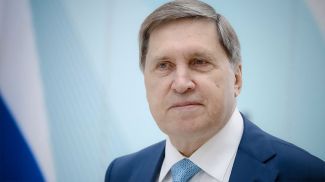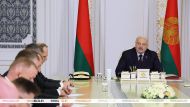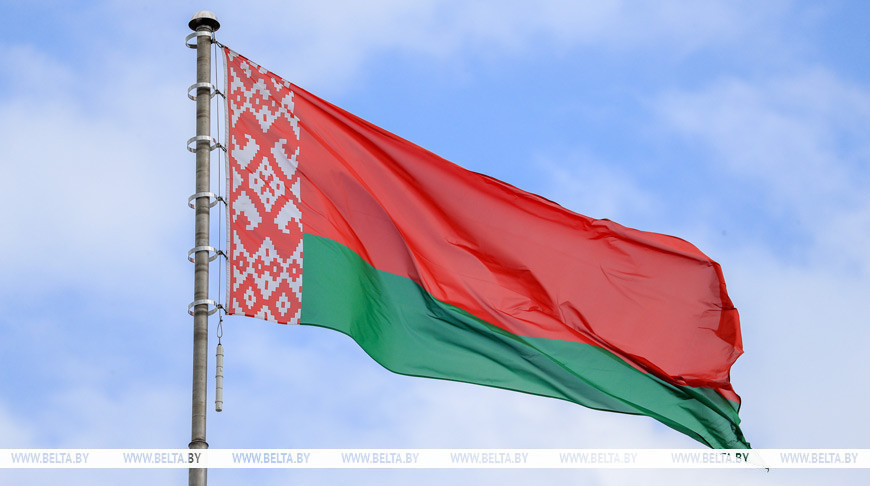
Western think tanks are keenly watching Minsk’s steps in the international arena. Due to a simplified view of Belarus, a lack of understanding of the historical and cultural background, stereotypes, many of the West’s predictions regarding our country didn’t hold water. Therefore, attempts are being made to rethink the situation in Belarus, its potential and strategic importance in the region.
In their reports, Western analysts draw attention to the geopolitical role of our country, its close ties with Russia and China, the potential for interaction with the United States, the elaborate foreign and domestic policies of Minsk and the unique pragmatism of Belarusians themselves. Let’s see some of the findings of Western think tanks. Probably some of them will surprise us, some will not resonate with us and others will make us think.
Minsk - Beijing. Family-Style Relations?
In early June, Belarusian President Aleksandr Lukashenko visited China. The visit of the Belarusian leader drew a lot of interest in the West. While the media tried to downplay the significance of the meeting (although they actively wrote about it), the analytical community, on the contrary, focused on the deepening strategic partnership between Belarus and China, the special relations between the leaders of the two countries.
“Belarus Cultivates Family-Style Relations with the People’s Republic of China,” reads the headline of an analytical article by the Jamestown Foundation.
The article analyzes the relations between Minsk and Beijing in three dimensions - economic, political and personal. And in each of them the level of interaction is quite high.
“Economic cooperation is at the core of the PRC-Belarus relationship, as the PRC is Belarus’s second-largest trading partner,” the article reads. It also provides data on trade, export and import, cooperation in science. It is noted that the current visit of Lukashenko to China is already the fifteenth one. This time, the Belarusian leader met with Xi Jinping and other top officials and business representatives.
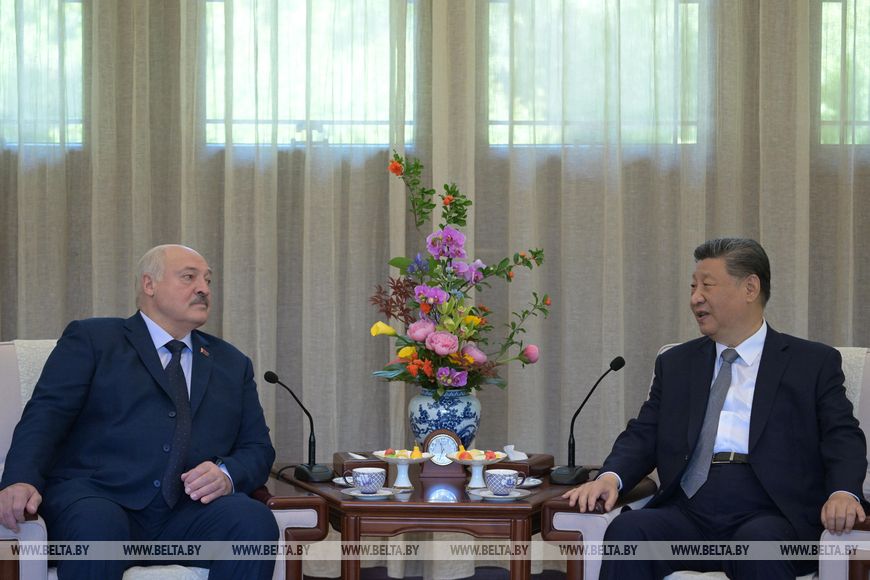
Political ties between Minsk and Beijing are equally strong. Not only in a bilateral format. China facilitated Belarus’ entry into new forums for international cooperation – the SCO and BRICS. It is very significant that Belarus joined the SCO as the first European member.
According to the Jamestown Foundation, Beijing sees Belarus as a strategic partner, while Minsk seeks to balance its foreign policy in the current geopolitical environment.
“The visit is part of Belarus’ broader foreign policy diversification to deepen the strategic partnership with the PRC while balancing its relationship with Moscow amid sanctions and geopolitical isolation from the West. The PRC classifies the relationship as an “all-weather comprehensive strategic partnership” which entails close relations that are expected to remain stable in the long term,” the article reads.
Politics without stereotypes. Is that possible?
For the second time this year, the International Institute for Middle East and Balkan Studies (IFIMES) based in Slovenia has published a report on Belarusian politics “without ideological stereotypes”.
The previous one titled “Presidential elections in Belarus 2025: Lukashenko – the art of balancing relations between East and West” analyzed the development of Belarus over the past 30 years and came to conclusions that are surprising for the Western community. It turned out that Belarus has achieved “remarkable economic results” despite Western sanctions. Belarus showed a remarkable level of resilience and adjustment to the new hostile economic environment and numerous sanctions. Moreover, it turned out that Belarus can become a model for the rest of Europe. This is a great merit of President Aleksandr Lukashenko. “Independent analysts believe that the current president of Belarus has achieved several accomplishments during his tenure,” IFIMES said.
In May, IFIMES released another review titled “Belarus 2025: Eurasia – an arena of emerging strategic partnerships.” The analysts study the experience of Belarus in building relations within the Eurasian region.
“In July 2024, Belarus became the first European country to join the Shanghai Cooperation Organization (SCO). This was followed in January 2025 by the signing of three strategic partnership agreements within the Eurasian region. Such developments can be regarded as part of the broader historical transformations currently reshaping the world. These partnerships are set to have a pivotal impact on geopolitical and geoeconomic positioning, signaling a shift in the geographical centers of confrontation and cooperation towards new regions, away from the traditional power hubs of the previous century. As a result, 2025 is set to be a year of profound transformation across the world stage,” IFIMES writes.
In their reports, Western analysts draw attention to the geopolitical role of our country, its close ties with Russia and China, the potential for interaction with the United States, the elaborate foreign and domestic policies of Minsk and the unique pragmatism of Belarusians themselves. Let’s see some of the findings of Western think tanks. Probably some of them will surprise us, some will not resonate with us and others will make us think.
Minsk - Beijing. Family-Style Relations?
In early June, Belarusian President Aleksandr Lukashenko visited China. The visit of the Belarusian leader drew a lot of interest in the West. While the media tried to downplay the significance of the meeting (although they actively wrote about it), the analytical community, on the contrary, focused on the deepening strategic partnership between Belarus and China, the special relations between the leaders of the two countries.
The article analyzes the relations between Minsk and Beijing in three dimensions - economic, political and personal. And in each of them the level of interaction is quite high.
“Economic cooperation is at the core of the PRC-Belarus relationship, as the PRC is Belarus’s second-largest trading partner,” the article reads. It also provides data on trade, export and import, cooperation in science. It is noted that the current visit of Lukashenko to China is already the fifteenth one. This time, the Belarusian leader met with Xi Jinping and other top officials and business representatives.

Political ties between Minsk and Beijing are equally strong. Not only in a bilateral format. China facilitated Belarus’ entry into new forums for international cooperation – the SCO and BRICS. It is very significant that Belarus joined the SCO as the first European member.
“The visit is part of Belarus’ broader foreign policy diversification to deepen the strategic partnership with the PRC while balancing its relationship with Moscow amid sanctions and geopolitical isolation from the West. The PRC classifies the relationship as an “all-weather comprehensive strategic partnership” which entails close relations that are expected to remain stable in the long term,” the article reads.
Politics without stereotypes. Is that possible?
For the second time this year, the International Institute for Middle East and Balkan Studies (IFIMES) based in Slovenia has published a report on Belarusian politics “without ideological stereotypes”.
The previous one titled “Presidential elections in Belarus 2025: Lukashenko – the art of balancing relations between East and West” analyzed the development of Belarus over the past 30 years and came to conclusions that are surprising for the Western community. It turned out that Belarus has achieved “remarkable economic results” despite Western sanctions. Belarus showed a remarkable level of resilience and adjustment to the new hostile economic environment and numerous sanctions. Moreover, it turned out that Belarus can become a model for the rest of Europe. This is a great merit of President Aleksandr Lukashenko. “Independent analysts believe that the current president of Belarus has achieved several accomplishments during his tenure,” IFIMES said.
In May, IFIMES released another review titled “Belarus 2025: Eurasia – an arena of emerging strategic partnerships.” The analysts study the experience of Belarus in building relations within the Eurasian region.
“In July 2024, Belarus became the first European country to join the Shanghai Cooperation Organization (SCO). This was followed in January 2025 by the signing of three strategic partnership agreements within the Eurasian region. Such developments can be regarded as part of the broader historical transformations currently reshaping the world. These partnerships are set to have a pivotal impact on geopolitical and geoeconomic positioning, signaling a shift in the geographical centers of confrontation and cooperation towards new regions, away from the traditional power hubs of the previous century. As a result, 2025 is set to be a year of profound transformation across the world stage,” IFIMES writes.
Belarus has made participation in the SCO a priority, focusing on expanding economic cooperation and reducing dependence on the US dollar as the global reserve currency.
“Belarus’s accession to the SCO once again highlights the divergence of the country’s political trajectory from that of its post-Soviet neighbors — namely the Baltic states and Ukraine — where efforts to integrate into Euro-Atlantic structures have been accompanied by a rise in Russophobia and deteriorating relations with Russia,” IFIMES said.
“This allowed Belarus to engage with both Western and Eastern partners in a calmer, more pragmatic manner, free from ideological constraints and stereotypes. Had this not been the case, Belarus might have faced the same fate as Ukraine, which lost a three-year war with Russia, suffering territorial losses and being left with a status that remains uncertain, as it is not expected to be welcomed into either NATO or the EU in the foreseeable future,” the review reads.
“Belarus’s accession to the SCO once again highlights the divergence of the country’s political trajectory from that of its post-Soviet neighbors — namely the Baltic states and Ukraine — where efforts to integrate into Euro-Atlantic structures have been accompanied by a rise in Russophobia and deteriorating relations with Russia,” IFIMES said.
“This allowed Belarus to engage with both Western and Eastern partners in a calmer, more pragmatic manner, free from ideological constraints and stereotypes. Had this not been the case, Belarus might have faced the same fate as Ukraine, which lost a three-year war with Russia, suffering territorial losses and being left with a status that remains uncertain, as it is not expected to be welcomed into either NATO or the EU in the foreseeable future,” the review reads.
IFIMES analysts also draw attention to the deepening ties between Belarus and China. This is bearing fruit and is demonstrating the visionary foreign policy pursued by President Aleksandr Lukashenko. “Belarus may have been one of the first post-Soviet states to consider cooperation with this rising global power. As such, accession to the Shanghai Cooperation Organisation represents a logical continuation of President Lukashenko’s visionary foreign policy,” analysts from the international institute say.
The baton has broken. Is Belarus a litmus test for the USA?
Western think tanks increasingly realize that the policy of pressure and coercion towards Belarus has failed, and in many ways it even hurts the West's own interests. Instead of subjugating Belarus by installing a puppet government in Minsk - as in some other European countries, Western elites have achieved the opposite effect. They have alienated Belarus and pushed it towards Russia, China, and the countries of the Global South. At the same time, Belarus managed to quickly adapt to the changes and find its bearings in a new environment, and to quite successfully diversify its foreign policy and economy. And ultimately to turn the situation in its favor.
The West knows this; it is highly frustrated and wants to push back. Meanwhile, Western think tanks are trying to think of ways to tear away Belarus from Russia and China, or at least to pull it a little closer to the West. No matter what you think of these scenarios, you cannot brush them aside.
Quite interesting thoughts were published this month by the American conservative magazine The National Interest. It is worth noting that the magazine is run by the Center for the National Interest, a public policy think tank that studies international relations and public policy and is close to moderate Republicans in the United States.
The above-mentioned article in The National Interest explores relations between Minsk and Washington. The main question raised by the author is whether Belarus can patch up relations with the United States. “Building a constructive relationship with Belarus, one of the few remaining regional swing players between Russia and the West, would generate a substantial windfall for security and stability in Eastern Europe at a time when the United States is seeking to prioritize its presence in other parts of the world, notably the Indo-Pacific,” the article reads.
“The “Belarusian balcony” is a key staging ground between NATO and Russia, making it a security actor of outsized importance in questions of conventional and nuclear force posture. Its location likewise allows it to act as a potentially significant economic hub between East and West,” the article argues.
This punitive approach yielded none of its desired results. “Minsk shielded itself from the Western sanctions hammer by deepening its ties to Russia and pursuing wide-ranging relations with an array of other non-Western actors, most notably China. Years of aggressive Belarusian import substitution, sanctions mitigation schemes, and attempts to cultivate relations with non-Western trading partners have further insulated Belarus from Western pressure,” the author said.
Had the West not made mistakes, the relations with Belarus could have been different, the author believes. If given the choice, Belarusians would overwhelmingly opt to buy iPhones and drive Fords or, considering the striking popularity of EVs in Minsk, Teslas.
“Promoting Minsk’s peaceful relations with its Western neighbors is a direct way of reducing the risks of future escalatory spirals between Russia and NATO. The re-entry of US and European companies into Belarusian markets, where China has become very well established, would help the country diversify its economy in ways that are beneficial for both Belarus and the West,” the National Interest states.
The author suggests ways to normalize relations between the United States and Belarus. “It is long past time to begin charting the outlines of a US-Belarus normalization deal. The particulars will have to be negotiated on the ground between American and Belarusian diplomats, but we can preview the components in broad brushstrokes. The United States would offer to commit to a concrete model for sanctions relief and open talks on investment opportunities for US companies, including in aviation, energy, and the car industry,” the author believes.
Then it gets even more interesting, and in some places trickier: “The White House would likewise provide assurances that it does not seek or support a forced change in government in Belarus. The latter has been a de facto reality for some time; putting it down on paper would go far in restoring bilateral trust. Additionally, the administration would offer itself as a mediator to help repair Belarus’ troubled relationship with its two western neighbors, Poland and Lithuania. Belarus, in turn, would agree not to facilitate, enable, or engage in aggression, whether direct or hybrid, against its neighbors. This provision, which verification mechanisms would underpin, would not cover self-defense and, therefore, does not contradict Belarus’ treaty obligations to Russia.”
It is noteworthy that the author of the article admits that forcing Belarus to make a civilizational choice between Russia and the West is unacceptable. If the West offers Minsk normalization of relations in exchange for Belarus' severing ties with Russia, it will lead nowhere. “There is no genuine, compelling US interest in saddling Belarus with a civilizational choice between Russia and the West. Forcing such a choice is unacceptable to Minsk, and if carried to its conclusion, it risks incurring a catastrophic Russian response,” the analyst believes.
He also believes that it is not a good idea to tie a reset with Belarus to war termination in Ukraine. Rather, the United States has every reason to engage with Belarus on its own terms as a sovereign state. Nor is it beneficial at this stage to enter into a common front with the Europeans, who will naturally inject their own conditions and stipulations.
It was also noted that there is a “creeping recognition” among European diplomats that the maximum pressure strategy against Belarus has failed. However, EU leaders remain bound by inertia to the current approach. “US action is needed to break the deadlock. A successful US-Belarus deal would render the EU maximum pressure policy increasingly untenable...The Trump administration has rightly diagnosed that US policy toward Europe is in dire need of reform, and Belarus provides perhaps the clearest litmus test of US capacity for course correction. The established approach toward Belarus has unambiguously failed. A better course stands ripe for the taking, and a deal along these lines would mark a significant diplomatic achievement that can be clinched relatively quickly. All that remains is the political will to follow through,” the author concluded.
We can conclude that, due to a number of circumstances, Belarus will naturally remain the focus of major Western players. However, as we know, the word "focus" can have another meaning. And that, undoubtedly, is worth keeping in mind.
Do pragmatic Belarusians have no phobias?
Western think tanks are paying close attention to public sentiment in Belarus. The Jamestown Foundation, in its analysis of Belarus-China relations, notes that the development of closer ties with Beijing aligns with the expectations of the Belarusian people. Belarusians prioritize economic relations with Russia followed by relations with China.
The Jamestown Foundation also explored Belarusian views toward Minsk’s foreign partners in greater detail in another report published at the end of April. That review emphasized the unique pragmatism of Belarusians and their preference to avoid a binary, either-or geopolitical choice.
“The majority of society did not perceive Russia and the West as mutually exclusive cooperation partners and integration options. About half of the population or more favored simultaneous integration with both Russia and the European Union,” the report noted.
Moreover, Belarusians tended to prioritize foreign partners on a situational basis, depending on tangible opportunities that cooperation with them could offer. At the same time, public opinion largely aligned with the direction of state policy, and the actions of the Belarusian government aimed at diversifying economic cooperation and diplomatic engagement resonated with society. Thus, during periods of political tensions and diplomatic crises in relations with the West, Belarusian public opinion would grow increasingly critical of the West and less enthusiastic about advancing cooperation with Western countries and institutions.
Analysts consider Belarusians to be a highly pragmatic nation. “When identifying preferred foreign policy vectors, the majority of society tends to assess present and palpable, not hypothetical and future, economic benefits and opportunities,” the analysts said.
The U.S. Jamestown Foundation and Slovenia’s IFIMES both conclude that Belarusians’ geopolitical pragmatism appears to be the lack of widespread phobias vis-à-vis both Russia and the West. “ In the Eastern European context, this looks quite unique and seems to distinguish Belarus from the rest of the region,” the Jamestown Foundation stressed.
Even as recent years have seen dramatic geopolitical shifts around Belarus. This pushed Belarusians away from the West and brought them closer to Russia and China. “After several years of massive Western economic sanctions and the logistical semi-blockade on Belarus’ borders with the European Union, it is hardly surprising that today most Belarusians see Russia and the PRC as two key foreign policy partners and want to continue advancing integration and cooperation with them... As a result, fewer and fewer Belarusians see any opportunities available to them in the West, whereas Russia and the PRC have become Belarus’ main economic partners. Cooperation with them has significantly intensified in recent years as the Minsk attempts to compensate for the damage by Western sanctions and, arguably, many Belarusians tend to associate their relatively stable well-being with this cooperation,” the analysts concluded.
Undoubtedly, the opinions, findings and forecasts voiced by foreign analytical centers should be taken with a grain of salt. Western think tanks often replace genuine analysis with blatant manipulation, without even attempting to delve deeper into the subject. However, they offer insight into the mindset of Western elites.
It is clear that the recent geopolitical shifts around the world are forcing many politicians and experts to take a more realistic view of global affairs. The world is changing rapidly. In that sense, Western decision-makers need to learn from the “geopolitical pragmatism” of the Belarusian people.
As for Belarus, we have clearly chosen our path. BelTA has already written about this in its March review titled “Trump's political odyssey. What does the US want and what does it mean for Belarus?” dedicated to global changes and the shift in political elites in Washington. At that time, we concluded that Belarus, without aspiring to be a geopolitical leader, lacking strong levers of influence from the outset, nonetheless managed to strengthen its position and now has the ability to lobby for its interests. Belarus has established strong ties with two of the world's three largest powers (Russia, China, and the United States). As for the United States, Belarus has no conflict with it, unless, certainly, it begins creating threats near Belarus’ borders.
All Belarus seeks is peace in the European region, the opportunity for calm and constructive cooperation with the West, trust-based and mutually beneficial relations with the East, and new horizons in the Global South. This is exactly what Belarusian pragmatism calls for and what the country’s complex, multifaceted, and future-oriented state policy aims to achieve.
We can conclude that, due to a number of circumstances, Belarus will naturally remain the focus of major Western players. However, as we know, the word "focus" can have another meaning. And that, undoubtedly, is worth keeping in mind.
Do pragmatic Belarusians have no phobias?
Western think tanks are paying close attention to public sentiment in Belarus. The Jamestown Foundation, in its analysis of Belarus-China relations, notes that the development of closer ties with Beijing aligns with the expectations of the Belarusian people. Belarusians prioritize economic relations with Russia followed by relations with China.
The Jamestown Foundation also explored Belarusian views toward Minsk’s foreign partners in greater detail in another report published at the end of April. That review emphasized the unique pragmatism of Belarusians and their preference to avoid a binary, either-or geopolitical choice.
“The majority of society did not perceive Russia and the West as mutually exclusive cooperation partners and integration options. About half of the population or more favored simultaneous integration with both Russia and the European Union,” the report noted.
Moreover, Belarusians tended to prioritize foreign partners on a situational basis, depending on tangible opportunities that cooperation with them could offer. At the same time, public opinion largely aligned with the direction of state policy, and the actions of the Belarusian government aimed at diversifying economic cooperation and diplomatic engagement resonated with society. Thus, during periods of political tensions and diplomatic crises in relations with the West, Belarusian public opinion would grow increasingly critical of the West and less enthusiastic about advancing cooperation with Western countries and institutions.
Analysts consider Belarusians to be a highly pragmatic nation. “When identifying preferred foreign policy vectors, the majority of society tends to assess present and palpable, not hypothetical and future, economic benefits and opportunities,” the analysts said.
The U.S. Jamestown Foundation and Slovenia’s IFIMES both conclude that Belarusians’ geopolitical pragmatism appears to be the lack of widespread phobias vis-à-vis both Russia and the West. “ In the Eastern European context, this looks quite unique and seems to distinguish Belarus from the rest of the region,” the Jamestown Foundation stressed.
Even as recent years have seen dramatic geopolitical shifts around Belarus. This pushed Belarusians away from the West and brought them closer to Russia and China. “After several years of massive Western economic sanctions and the logistical semi-blockade on Belarus’ borders with the European Union, it is hardly surprising that today most Belarusians see Russia and the PRC as two key foreign policy partners and want to continue advancing integration and cooperation with them... As a result, fewer and fewer Belarusians see any opportunities available to them in the West, whereas Russia and the PRC have become Belarus’ main economic partners. Cooperation with them has significantly intensified in recent years as the Minsk attempts to compensate for the damage by Western sanctions and, arguably, many Belarusians tend to associate their relatively stable well-being with this cooperation,” the analysts concluded.
Undoubtedly, the opinions, findings and forecasts voiced by foreign analytical centers should be taken with a grain of salt. Western think tanks often replace genuine analysis with blatant manipulation, without even attempting to delve deeper into the subject. However, they offer insight into the mindset of Western elites.
It is clear that the recent geopolitical shifts around the world are forcing many politicians and experts to take a more realistic view of global affairs. The world is changing rapidly. In that sense, Western decision-makers need to learn from the “geopolitical pragmatism” of the Belarusian people.
As for Belarus, we have clearly chosen our path. BelTA has already written about this in its March review titled “Trump's political odyssey. What does the US want and what does it mean for Belarus?” dedicated to global changes and the shift in political elites in Washington. At that time, we concluded that Belarus, without aspiring to be a geopolitical leader, lacking strong levers of influence from the outset, nonetheless managed to strengthen its position and now has the ability to lobby for its interests. Belarus has established strong ties with two of the world's three largest powers (Russia, China, and the United States). As for the United States, Belarus has no conflict with it, unless, certainly, it begins creating threats near Belarus’ borders.
All Belarus seeks is peace in the European region, the opportunity for calm and constructive cooperation with the West, trust-based and mutually beneficial relations with the East, and new horizons in the Global South. This is exactly what Belarusian pragmatism calls for and what the country’s complex, multifaceted, and future-oriented state policy aims to achieve.
Vita Khanatayeva,
BelTA
BelTA




